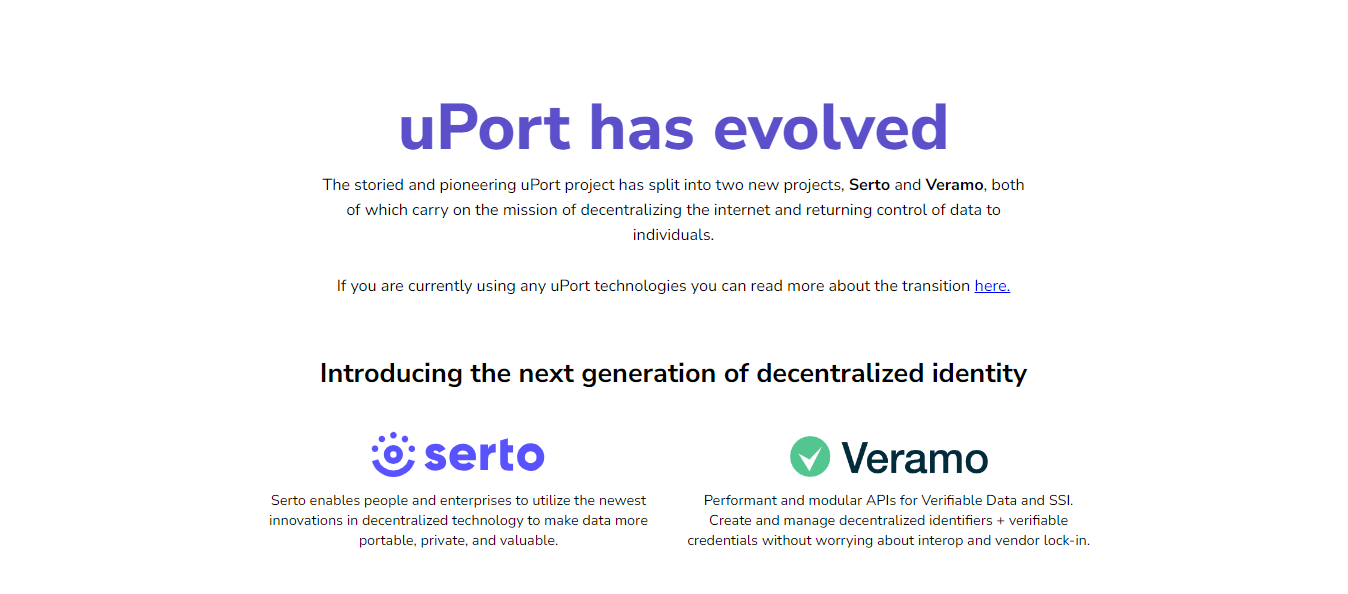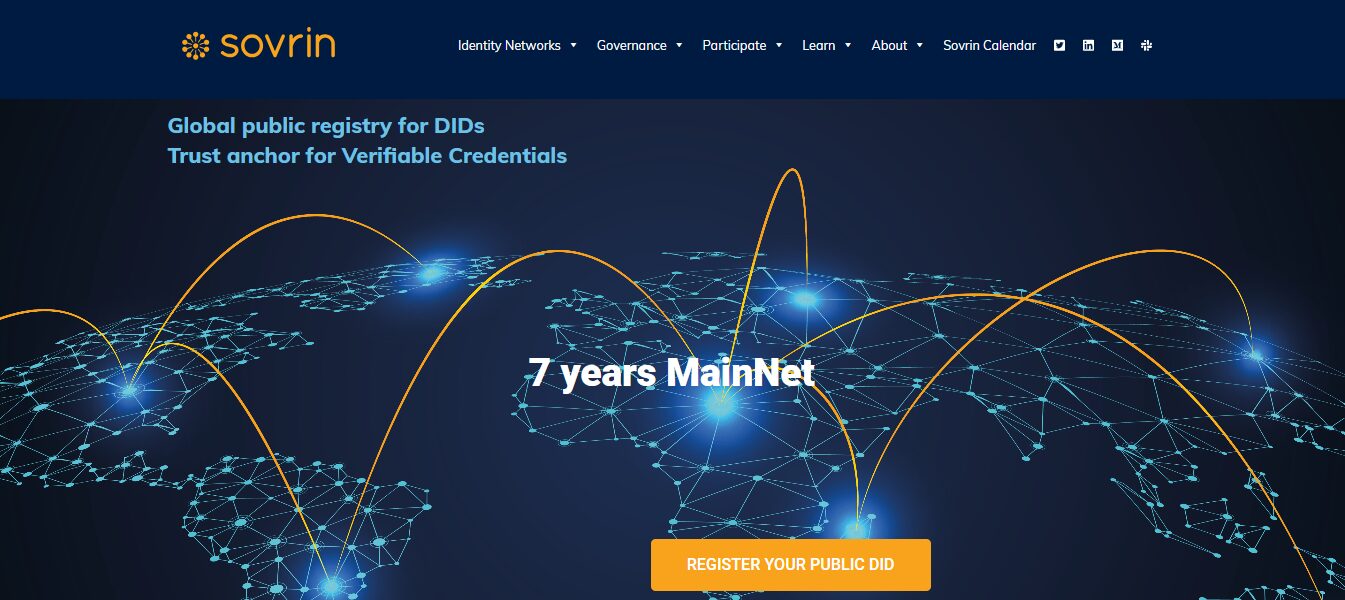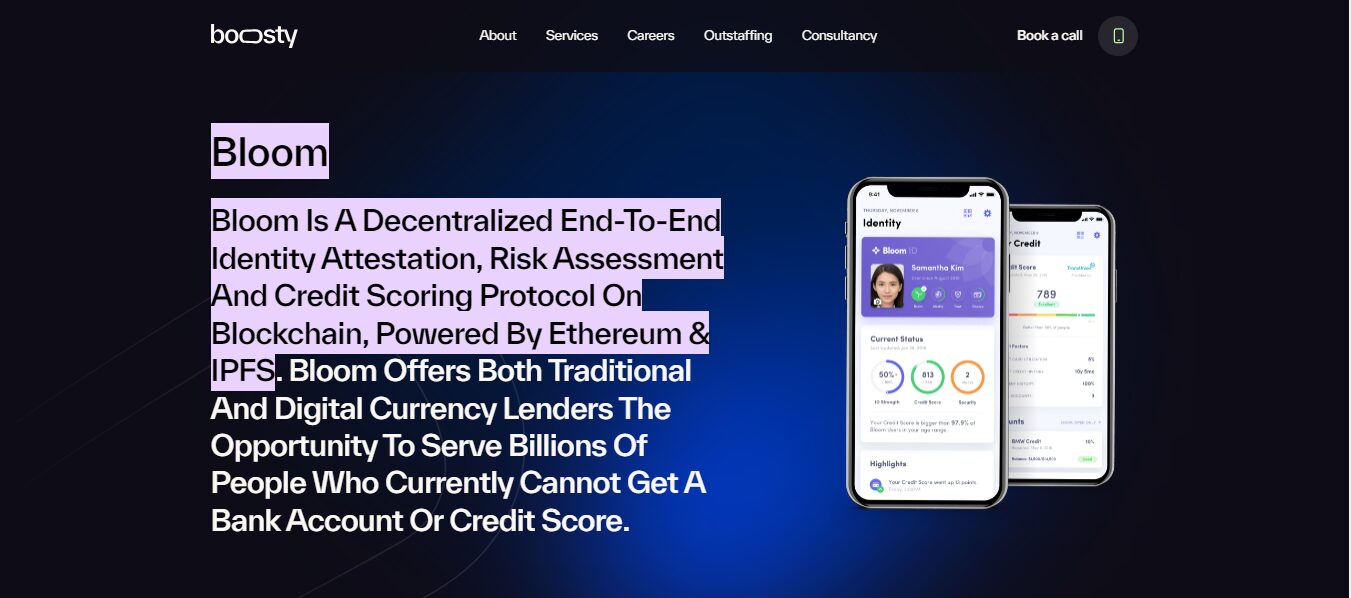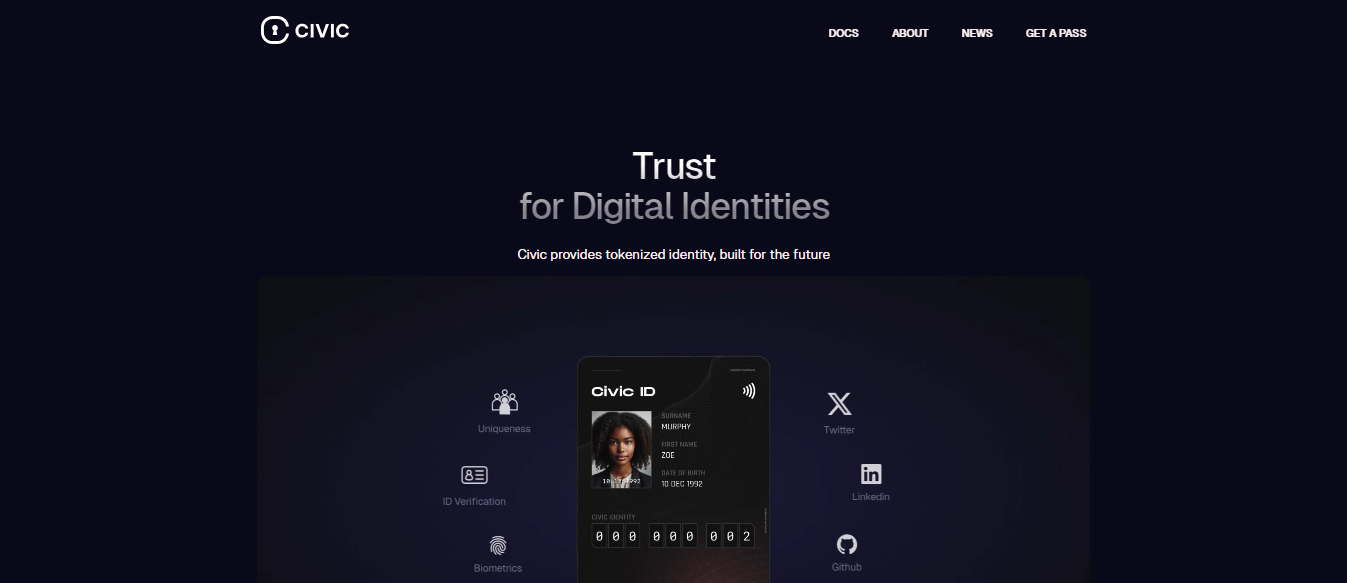DeFi represents a shift from typical monetary establishments in direction of open, permissionless, and trustless monetary providers based mostly on blockchain know-how. A key good thing about DeFi is consumer autonomy, permitting people to handle their belongings and have interaction with monetary providers with out counting on centralized authorities like banks.
In DeFi, customers retain full management over their belongings, empowering them to retailer, switch, and make investments funds with out a government, thereby taking cost of their monetary futures. DeFi platforms are accessible to anybody with an web connection and a appropriate digital pockets, eradicating limitations corresponding to credit score scores or banking relationships. Working on permissionless blockchains like Ethereum, DeFi functions require no approval from a central entity.
Nonetheless, the ecosystem nonetheless largely makes use of centralized id techniques. That is inefficient and doesn’t match with its imaginative and prescient and mission. Thus, there may be an rising want for safe, user-controlled id verification strategies that correspond with its providing. Conventional id techniques typically require customers to share delicate data with centralized authorities, posing dangers of privateness invasion.
The Want for Decentralized Identification Options
The rise of DeFi underscores the significance of improved id options, particularly decentralized id options. These options empower customers to have better management over their private data, permitting them to share solely vital knowledge whereas sustaining possession and privateness.
Decentralized id options make the most of blockchain know-how to ascertain a safe and personal system. Customers handle their identities by decentralized identifiers (DIDs) and verifiable credentials, that are cryptographically safe and tamper-proof.
These options provide a number of advantages together with consumer possession and management over knowledge, enhanced privateness by selective disclosure and sharing of knowledge and interoperability throughout completely different platforms and providers, enabling customers to take care of a single digital id for varied DeFi functions. This simplifies the consumer expertise and encourages broader DeFi adoption.
Not like typical id verifications, which include the danger of knowledge breaches, decentralized id options improve safety and cut back the danger of id theft. Moreover, they align with the DeFi ideas of decentralization and consumer empowerment.
In DeFi, safe and dependable id verification is essential because of the absence of intermediaries.
How Decentralized Identification Options are Carried out in DeFi Platforms
DeFi platforms are more and more adopting decentralized identification options to streamline consumer onboarding. These options, which allow customers to entry monetary providers with out the necessity for repeated id verifications throughout completely different platforms, are carried out in several methods.
Self-Sovereign Identification (SSI)
Self-Sovereign Identification (SSI) is a precept underlying decentralized id options, the place people personal and management their digital identities with out counting on a government. SSI empowers customers to resolve how their private data is shared and used, enhancing privateness and safety.
Self-sovereign identities are simply created and managed by decentralized id techniques.
Blockchain Anchoring
Blockchain anchoring includes utilizing blockchain know-how to retailer and confirm id data and transactions. This ensures that id knowledge is tamper-proof and immutable, offering a clear and safe strategy to handle identities. The decentralized nature of blockchain eliminates single factors of failure, making it extra resilient to assaults and breaches.
Decentralized Identifiers (DIDs) are examples of how that is performed. DIDs are distinctive, user-controlled identifiers anchored on blockchain networks. Not like conventional identifiers issued by centralized authorities, DIDs are created and managed by the customers themselves. They’re cryptographically safe and can be utilized throughout completely different platforms and providers, permitting customers to take care of management over their digital identities.
Identification-linked Good Contracts
Identification-linked good contracts play a vital function in integrating decentralized id into DeFi ecosystems. These contracts leverage verified consumer identities to execute transactions and grant entry to particular monetary providers. By making certain that monetary transactions happen inside the bounds of safe and authenticated identities, these good contracts improve belief and safety inside DeFi platforms.
Verifiable Credentials
Verifiable Credentials are digital statements issued by trusted entities that affirm particular attributes a couple of consumer, corresponding to their age, training, or skilled {qualifications}. These credentials are cryptographically signed to make sure their authenticity and could be selectively shared by customers as wanted, offering proof of id with out revealing extra data than vital.
Making certain interoperability throughout varied DeFi platforms is important for id implementation. Verifiable Credentials,developed by the World Vast Internet Consortium (W3C), facilitate seamless cross-platform compatibility. This interoperability empowers customers to effectively use their decentralized identities throughout varied protocols and providers, leading to a extra cohesive and user-friendly DeFi expertise.
Belief Frameworks
Belief Frameworks are agreements and requirements that outline how identities are managed, verified, and trusted inside a decentralized system. These frameworks set up the foundations and protocols for id interactions, making certain that each one events adhere to the identical requirements of safety and trustworthiness.
Examples of Decentralized Identification Options
uPort in ConsenSys

uPort, developed by ConsenSys, is a decentralized id platform that empowers customers with self-sovereign identities. It permits people to securely handle private data on the blockchain, making certain autonomy and safety with seamless entry to DeFi providers.
uPort has a system in place to assist confirm consumer identities whereas safeguarding privateness.thus DeFi platforms can leverage the software and nonetheless be compliant with KYC (Know Your Buyer) and AML (Anti-Cash Laundering) rules.
Sovrin Community

Sovrin helps erves each each people and organizations acquire autonomy over their digital identities. The platform offers verifiable credentials that DeFi platforms make the most of for id verification and repute administration inside decentralized finance. Client even have the aptitude to selectively disclose data to DeFi providers.
Bloom Protocol

Bloom Protocol, powered by Ethereum & IPFS is a blockchain-based protocol specializing in id verification, threat evaluation, and credit score scoring options. Inside DeFi, Bloom facilitates decentralized credit score scoring, permitting lenders to make the most of its system for evaluating borrower creditworthiness with transparency and reliability.
Bloom’s platform ensures safe and personal onboarding of customers to DeFi providers by strong id verification processes. DeFi platforms combine Bloom’s instruments for credit score threat evaluation, enhancing threat administration methods and lending practices inside the ecosystem.
Civic

Civic presents blockchain-based id verification know-how that provides customers management over their digital identities and private knowledge. Civic offers safe consumer authentication options, enabling safe id verification for accessing DeFi platforms and minimizing dangers associated to id theft and fraud.
Customers can confirm their identities for KYC functions with out compromising privateness and sustaining confidentiality in monetary transactions. Trusted by Polygon, GITCOIN, and MetaPlex, Civic’s verified credentials allow customers to ascertain and handle reputations inside the DeFi ecosystem, selling belief and credibility of their interactions.
Challenges and Obstacles to Adoption of Decentralized Identification in DeFi
Whereas decentralized id options symbolize a dynamic facet of the DeFi world, they face a number of challenges:
Regulatory Compliance
Implementing identification techniques in DeFi introduces regulatory compliance challenges. Whereas these techniques improve safety and privateness, they need to align with evolving authorized requirements. DeFi platforms have to navigate regulatory landscapes to make sure decentralized identities meet compliance necessities. Collaboration between business stakeholders and regulatory our bodies is essential for establishing clear pointers and frameworks.
Adoption and Person Training
Profitable implementation of decentralized id in DeFi requires widespread adoption and consumer training. Platforms should educate customers about the advantages and functionalities of id options to foster belief and acceptance. Clear communication about how these techniques improve safety and privateness is important. Person-friendly interfaces that simplify the adoption course of and supply intuitive experiences will play a pivotal function in encouraging widespread adoption.
Interoperability Challenges
Attaining interoperability throughout numerous DeFi platforms and decentralized identification options poses vital challenges. Seamless integration and cross-platform compatibility rely on standardized protocols and frameworks. Initiatives by organizations just like the Decentralized Identification Basis (DIF) and the World Vast Internet Consortium (W3C) intention to ascertain interoperability requirements corresponding to Verifiable Credentials. These efforts are essential for making a unified setting the place customers can simply make the most of their identities throughout varied DeFi providers.
Potential Future Developments in Decentralized Identification
As DeFi continues to evolve, a number of rising developments and applied sciences are shaping the way forward for decentralized id:
Decentralized Identification as a Normal
The way forward for DeFi is poised to combine decentralized identification as an ordinary function throughout all platforms. This development will eradicate the necessity for redundant verifications, permitting customers to take care of a single id for seamless interplay with varied monetary providers. This streamlined method, centred on consumer comfort and safety, is anticipated to catalyze widespread adoption of DeFi.
Privateness-Preserving Improvements
Future developments in decentralized id will prioritize privateness enhancements by revolutionary applied sciences. Methods corresponding to homomorphic encryption and zero-knowledge proofs will bolster the safety of consumer knowledge, making certain that interactions inside DeFi are performed with utmost confidence within the safety of non-public data. These developments will empower customers to have interaction extra freely whereas safeguarding their privateness.
World Accessibility and Inclusion
Decentralized id options are set to reinforce international monetary inclusion and accessibility. By enabling people to show their id with out conventional documentation, these options broaden entry to monetary alternatives worldwide. DeFi, fueled by decentralized id, is poised to grow to be a catalyst for international monetary inclusion, empowering people no matter their geographic location or entry to traditional identification paperwork.
Ultimate Ideas
Wanting forward, decentralized id is poised not solely to be a function however a vital element of DeFi, facilitated by collaborative efforts throughout the business, regulatory our bodies, and customers.
Embracing decentralized identifiers permits DeFi builders to construct a safer, extra user-friendly, and revolutionary monetary ecosystem, benefiting the blockchain neighborhood and driving the adoption of DeFi and different blockchain functions.
Disclaimer: This text is meant solely for informational functions and shouldn’t be thought-about buying and selling or funding recommendation. Nothing herein needs to be construed as monetary, authorized, or tax recommendation. Buying and selling or investing in cryptocurrencies carries a substantial threat of economic loss. At all times conduct due diligence.
If you want to learn extra articles (information experiences, market analyses) like this, go to DeFi Planet and comply with us on Twitter, LinkedIn, Fb, Instagram, and CoinMarketCap Neighborhood.
“Take management of your crypto portfolio with MARKETS PRO, DeFi Planet’s suite of analytics instruments.”
The put up The Rise of Decentralized Identification Options in DeFi appeared first on DeFi Planet.









